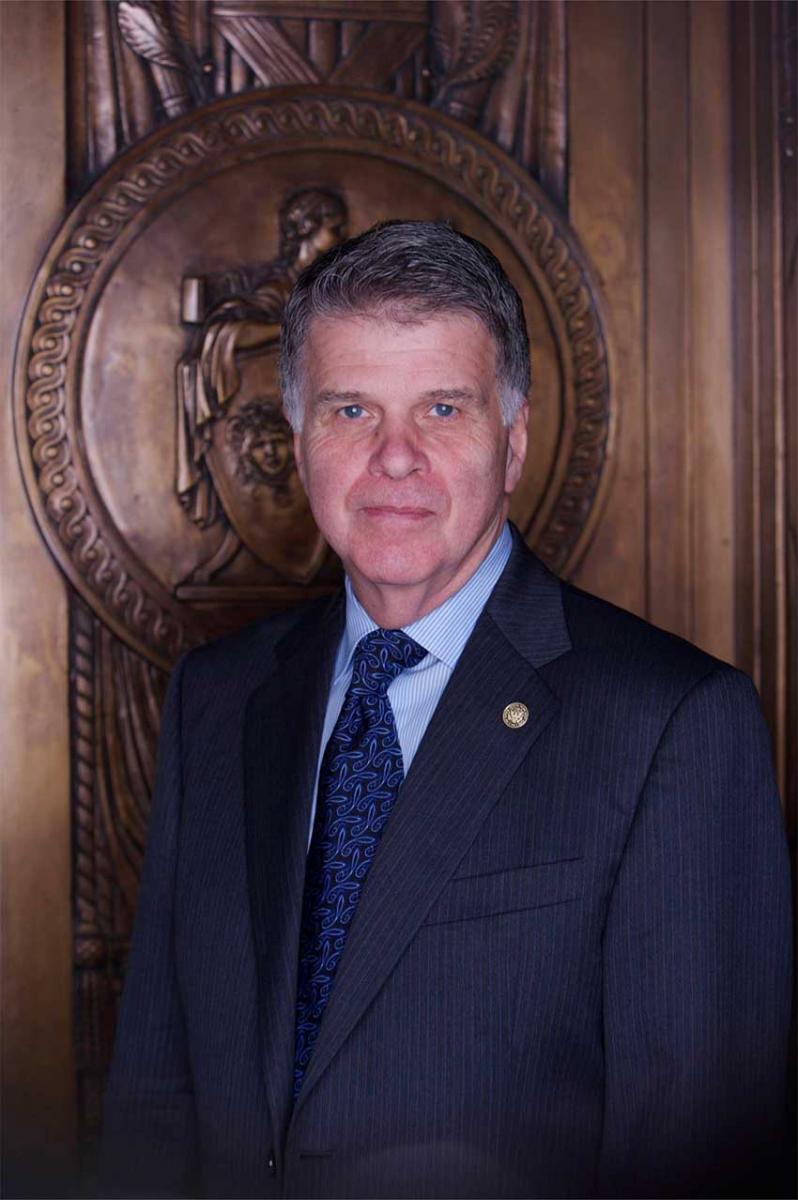
Prepared remarks of Archivist of the United States David S. Ferriero at a book lecture by Pauline Maier. National Archives Building, Washington, DC
October 29, 2010
Good afternoon. I am David Ferriero, Archivist of the United States, and welcome to the National Archives and to the William G. McGowan Theater.
Before we get to today’s program, I’d like to alert you to three other programs that will take place in this theater soon.
Next Friday, November 5, at 7 p.m., the Sixth Annual McGowan Forum on Communications will present a special screening of Long Distance Warrior: A New Documentary about the Most Famous Entrepreneur You’ve Never Heard Of. This documentary tells the story of William G. McGowan—for whom this theater is named—and the man who built MCI into a telecommunications powerhouse.
Two programs the next week relate to the opening of Part Two of our major exhibit, “Discovering the Civil War.”
On Wednesday, November 10, at noon we will host author Robert M. Poole, who will discuss his book On Hallowed Ground, the Story of Arlington National Cemetery. At 7 p.m. that night, we’ll have a special showing of Buster Keaton’s classic 1927 silent comedy The General, with live piano accompaniment.
To learn more about these and all of our public programs and exhibits, consult our monthly Calendar of Events. There are copies in the lobby—along with a sign-up sheet so you can receive the Calendar by regular mail or e-mail. You’ll also find brochures about other National Archives programs and activities.
Another way to get more involved in the National Archives is to become a member of the Foundation for the National Archives. The Foundation supports the work of the agency, especially its education and outreach programs. Pick up your application for membership in the lobby.
And last—visit the Archives Shop one floor up or through Archives.gov. You’ll find an assortment of products and publications relating to the National Archives and its holdings.
* * *
Upstairs, enshrined in the center of the Rotunda, lie the original parchment sheets that bear the words of our nation’s Constitution. A case just to the right contains the original Bill of Rights. We may view these founding documents as timeless, but the government set up by these documents was not inevitable.
In the fall of 1787, the future of the United States was in doubt. The Constitutional Convention in Philadelphia had adjourned in September and presented the states with a proposal for a new government.
The nascent American republic governed by the Articles of Confederation was weak—but what would this new form of government bring?
In Ratification: The People Debate the Constitution, 1787–1788, Pauline Maier explores what happened during the yearlong debate over the proposed new instrument of government. In this debate, some asked if—having only recently thrown off British rule—we were inviting another form of despotic rule.
Others drew attention to the inadequacies of the Articles of Confederation and the pressing need for change.
Many books have been written about the Constitution Convention, but this is the first major history of ratification. Ratification was a real struggle—something that most of us today forget.
The popular debate over the Constitution reminded our author—fittingly for this week—of the World Series. She calls politics our “first national game,” with observers trying to “calculate how what happened in one state would affect what came later.” The outcome was not certain until the ninth state convention voted to ratify.
For the details of this tension-filled story, Professor Maier drew heavily on The Documentary History of the Ratification of the Constitution, Edited at the University of Wisconsin-Madison and Published by the State Historical Society of Wisconsin.
This is a multivolume publication project supported by the National Historical Publications and Records Commission, the grant-making arm of the National Archives. Since 1964, the NHPRC has made over 4,800 grants to fund projects to document democracy and has recently announced that the papers of the Founders of the United States of America will be freely available online.
The documentary editing projects supported by the NHPRC open up access to primary sources across the country to historians such as Professor Maier and to anyone interested in learning more deeply about our national past.
* * *
Pauline Maier is the William R. Kenan, Jr., Professor of American History at MIT. She received her Ph.D. from Harvard University and is the author of several highly praised books on American history, including From Resistance to Revolution: Colonial Radicals and the Development of American Opposition to Britain; The Old Revolutionaries: Political Lives in the Age of Samuel Adams; and American Scripture: Making the Declaration of Independence.
Professor Maier has also appeared in numerous television specials airing on PBS and the History channel. Among these are Liberty! The American Revolution, Benjamin Franklin, and Founding Brothers. She has also taught at Yale; the University of Massachusetts, Boston; and the University of Wisconsin, Madison.
Ladies and gentlemen, please welcome Pauline Maier.
 The Archivist of the United States is the head of our agency, appointed by the President of the United States.
The Archivist of the United States is the head of our agency, appointed by the President of the United States.